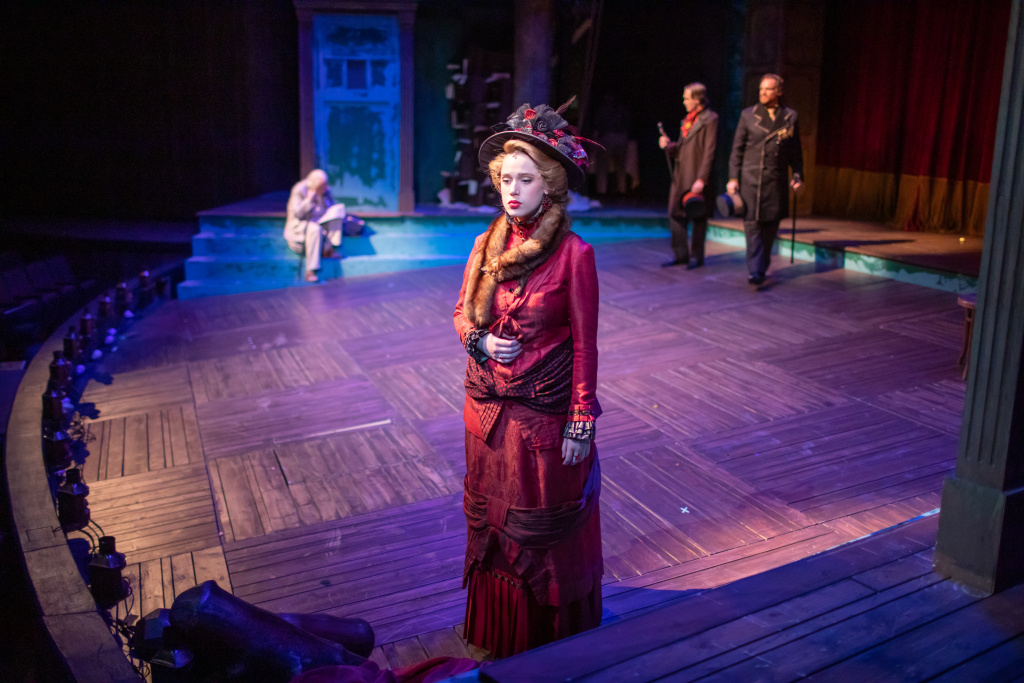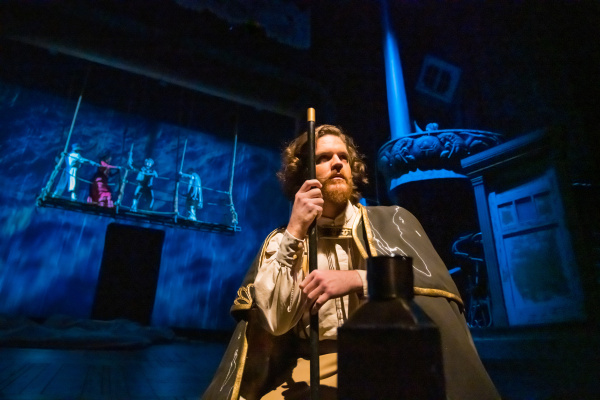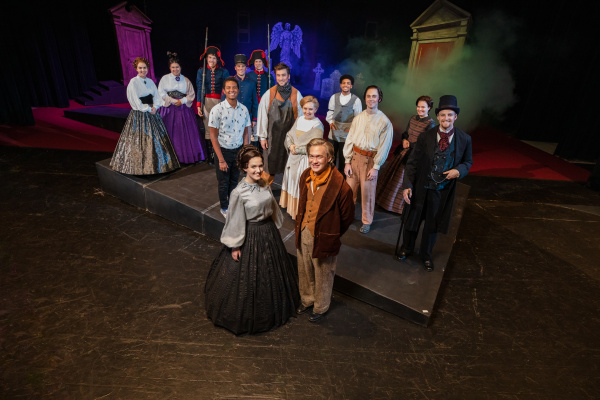Shakespeare wrote The Tempest with only one female in the cast of characters. However, director Jeffrey Stegall has added another female by changing the role of Alonso, King of Naples, into Alonsa the Queen. Senior theatre student Kate Jones brings a fresh perspective and a fourth generation of Shakespearean thespians to the role.
BJU invites the community to watch The Tempest via streaming at 7:30 p.m. ET Nov. 19 at bju.edu/live.
See Also: The Tempest SMART Guide and Cast of Characters
What do you enjoy most about playing Alonsa? What about her character can you connect with? What do you enjoy about playing the “bad guy” or in this case girl?
I find Alonsa’s character really interesting. This is going into No. 2 a bit, but I think changing the traditionally male role to one played by a woman brings the character tension to the foreground. Not only is she a queen surrounded by a lot of men (how safe or in control does she feel in her position of leadership?), but she’s also a mother who’s “lost” her son (how does a leader deal with that kind of loss while attempting to maintain your leadership among these people that she may or may not trust, in a strange place that she doesn’t know if she’ll ever escape?). Finally, she’s a sister. Sebastian is her younger brother, yet they barely talk to each other throughout the play, which creates an interesting dynamic (for their very brief interaction, I find it interesting to ask “is she being a sister right now, or is she being the queen?”).
As to connection, I think her feelings of grief, hurt, and the overwhelming sense of being completely lost — both physically, on an unfamiliar island, and as a person without a son, without a ship, without a kingdom to rule, etc. — are definitely feelings I can understand.
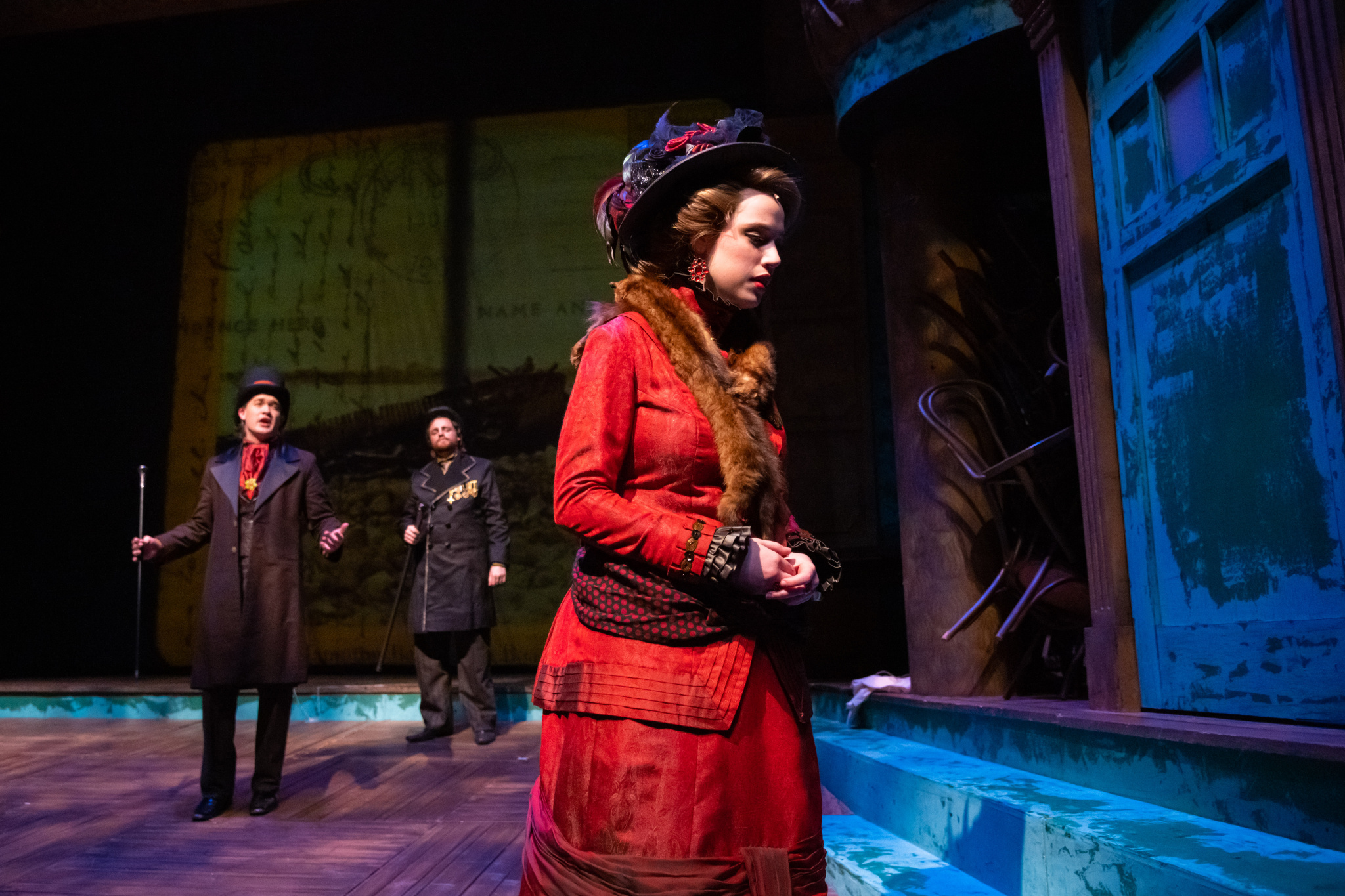
As an actor, one of the things I think is most important in the beginning of creating a character is learning to understand, appreciate, and even come to like the person — no matter how “bad” he/she may be. For Alonsa, the worst choice in her life (the choice that made her a bad guy in the context of the play) has already been made. It’s been 12 years since she gave the order to have Prospero expelled from his dukedom and his brother, Antonio, installed as the new duke. Personally, I think she’s regretted that choice for a long time, and that she’s endeavored to be a better person since then, so I don’t really see her as actively being the bad guy in this play (would definitely say Antonio and Sebastian fit that role better).
How do you get into character for a role traditionally written for a man?
I’ve already said a bit about this point, but there are a couple more things I want to address. First, I’ve played men before, which is a very different process from playing a female originally written to be a man. Second, Shakespeare’s writing is very accessible — even his female characters are written to be incredibly strong, so the language itself is not necessarily distinguishably male or female.
As to getting into character, it began with an acceptance that Alonsa is female and I get to play her, then there is a negotiation with the facts of the play and figuring out how she relates to the other characters — specifically how those relations might be changed because of her gender. The hardest part really, which wasn’t terribly hard at all, was changing all of the references to her (ex. From “sir” to “madam”).
What is it like being one of only two women in the cast?
It’s been a really fun process to get to know everyone a little better and to be able to work with them. Acting with my grandfather (Dr. Bob Jones III), for example (he plays my servant, Gonzalo), has been a big treat. It’s also interesting to see how some of the people I’ve worked with previously have grown and to interact with those I haven’t acted with before. While the cast is very male-heavy, it’s not been a hindrance to the process in any way. Alyssa Chapman (who plays Miranda) and I get to share a dressing room and chat while we put on our makeup and our fantastic costumes, and all of the guys on the cast have been just as enjoyable to be around and work with. We also have a wonderful cast (called the ensemble) which includes several of my female friends who play island “spirits” and other fun little roles throughout the play. So in that respect, it’s nice to not feel so outnumbered while waiting in the green room between scenes.
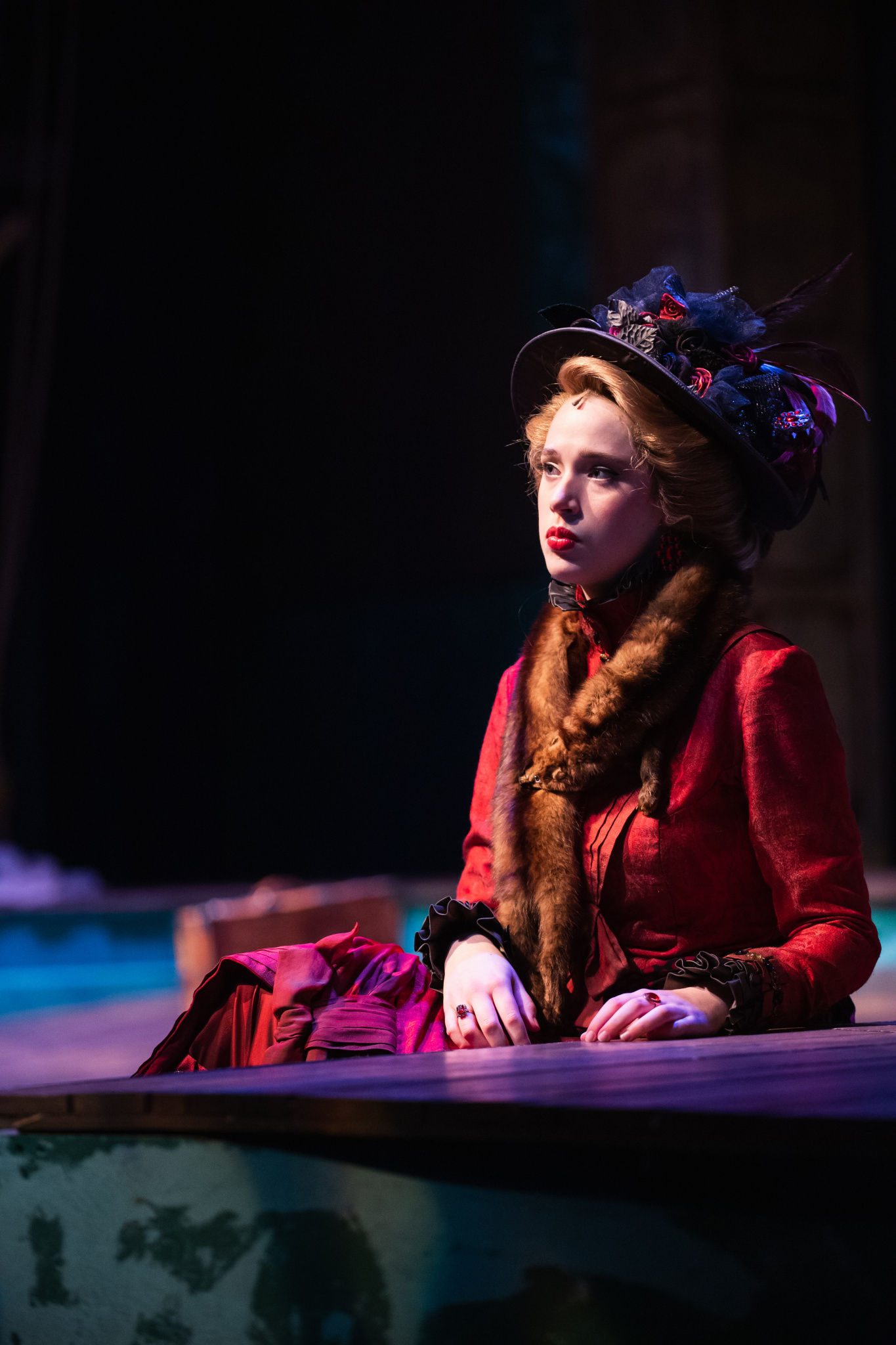
You are the fourth generation of Shakespearean actors in your family. Have your parents or grandparents imparted any advice that has helped you? How do you feel about carrying on the Classic Players tradition?
Yes, it’s exciting I get to carry on the acting legacy many in my family have contributed to before me. I don’t know that there’s been anything specifically stated as advice, but as I’ve grown up I’ve had the privilege of watching my parents and grandparents play some wonderful Shakespearean characters. I remember helping my mom with her lines when she played Beatrice in Much Ado.
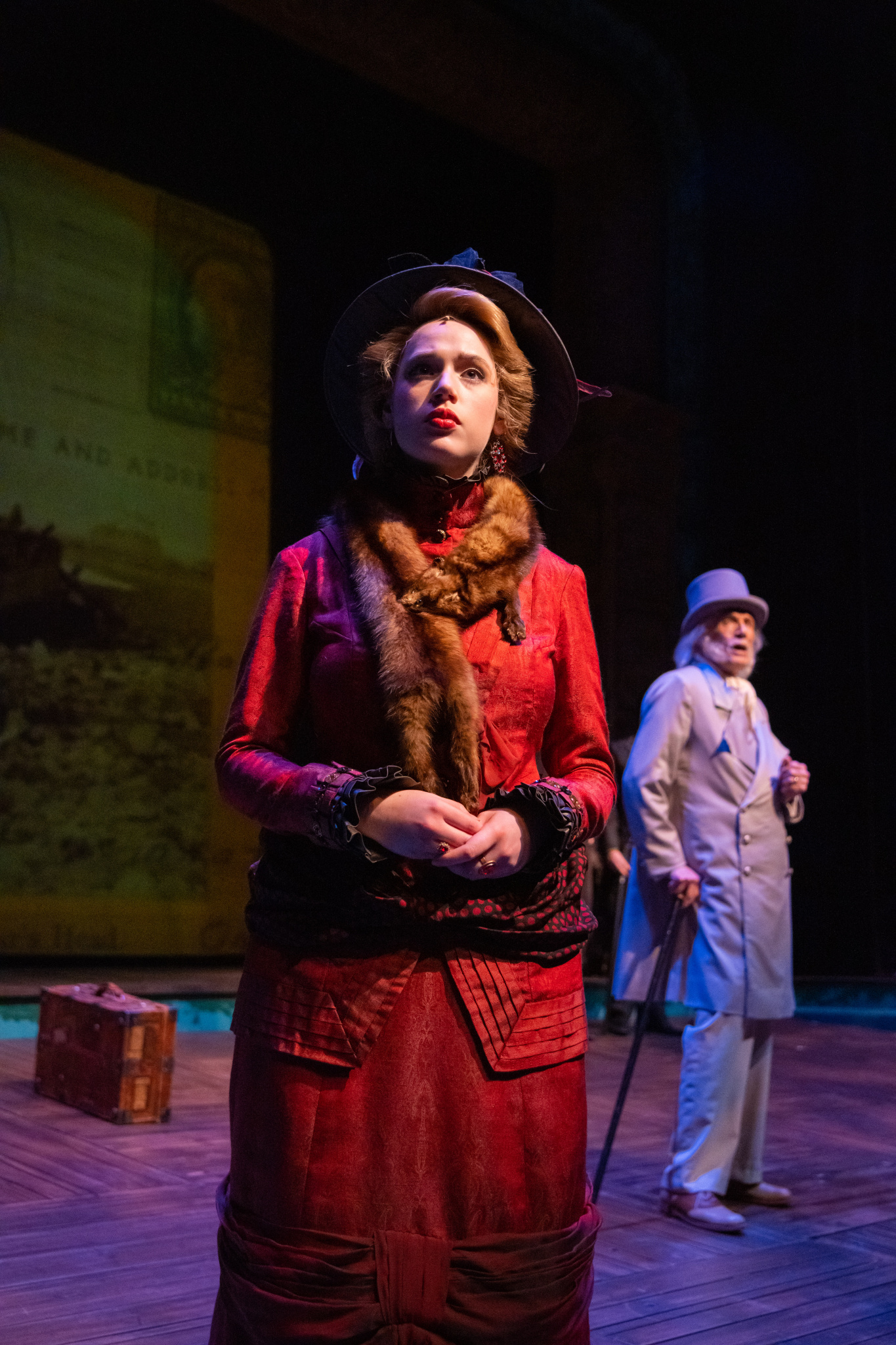
I’ve been able to have some delightful conversations with my grandfather as well, while in process creating Tempest. Shakespeare is so familiar to him at this stage of life, it’s almost a second language. A month or so ago, I asked him how he went about creating a character, and he reminded me how important the text is to an actor.
Often, I ask my parents’ opinions about other roles I’ve played — whether they can see me growing and improving or not — because I trust their judgment. I love having conversations with both my mom and dad about their appreciations of Shakespeare and what they think about specific things as I work to grow my appreciation for the Bard and acting in general.
I am honored to be included, now, in the Classic Players. I’ve been coming to productions since I was 6 (and maybe a little before) and have always hoped to someday take a place on the stage. I can’t tell you how excited I am to be playing this wonderful role, and I look forward to hearing audience reaction to this production.


